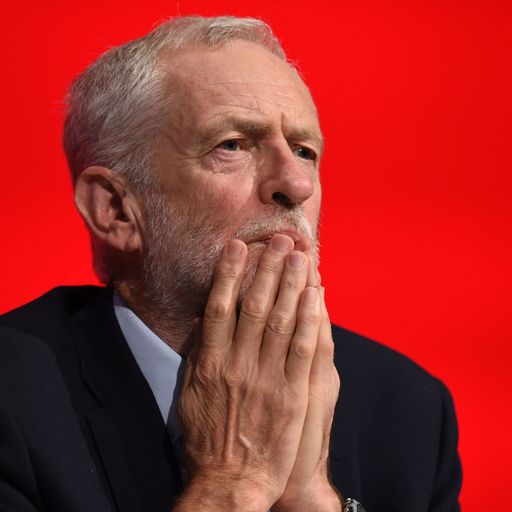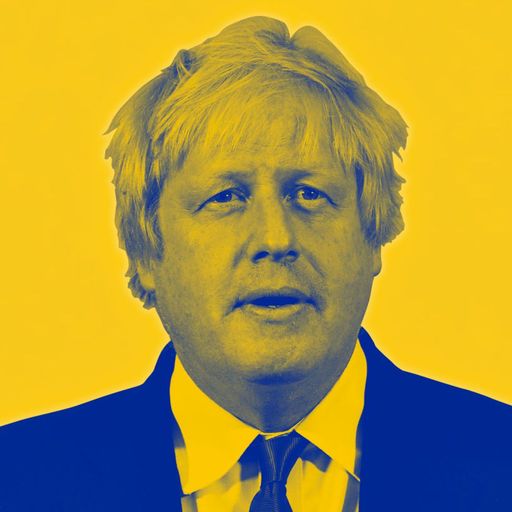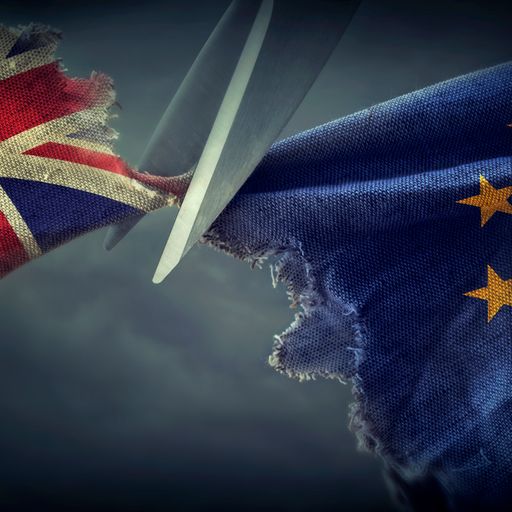For anti-no dealers it may be Corbyn or bust
For the Labour leader to become prime minister some Tory MPs would have to vote against their own government.
Autumn has come early and I'm not just talking about the weather.
A confidence motion in the government, the first truly competitive confidence motion since 1979, is bound to take place in September but already, with August not yet half over, Jeremy Corbyn is laying the groundwork.
He has written to his fellow opposition party leaders in Westminster, urging them to support him. He's said he would lead a short, time-limited caretaker administration whose only purpose would be to seek an extension of Article 50 before seeking a mandate from the country in a general election.
There has been endless speculation about a so-called "government of national unity" being formed, should Boris Johnson lose a confidence vote.
Virtually every grandee has been mentioned as a possible caretaker prime minister, from Ken Clarke to Margaret Beckett and back again.
The idea largely rests on a well-founded fear: that Jeremy Corbyn is almost uniquely repellent to the Tory MPs that would be needed to do the unthinkable and vote against their own government in a confidence motion.
As sound as these concerns around Mr Corbyn's political palatability might be, the plans to avoid him are pie in the sky.
There is no universe where the leader of the opposition, of any hue, is going to stand aside, allow someone with considerable less democratic legitimacy than themselves and about whom the public might have never heard to become prime minister in their stead, much less provide the votes to make it happen.
It would be an act of near unprecedented political altruism, one fraught with political danger for Labour.
They would be supplying the bulk of the votes, for a government their leader wasn't leading, a government which would be lambasted from every direction, accused of being an anti-democratic coup d'etat, of an elite conspiring against its own citizens wishes.
Labour would internalise all of that vitriol, all of the risk, whilst reaping little reward. It isn't going to happen.
Boris Johnson then isn't the only party leader playing hardball this summer. Corbyn is going to lay down the gauntlet to remainer MPs and say that he, for them, is the only game in town, to narrow the only possible option to avert no deal lays at his door.
In so doing, he hopes he can acquire the keys to Boris Johnson's. If no deal cannot be averted by legislative means (the preferred option for many MPs) then for the anti no-dealers it will be Corbyn or bust.
A confidence motion in the government, the first truly competitive confidence motion since 1979, is bound to take place in September but already, with August not yet half over, Jeremy Corbyn is laying the groundwork.
He has written to his fellow opposition party leaders in Westminster, urging them to support him. He's said he would lead a short, time-limited caretaker administration whose only purpose would be to seek an extension of Article 50 before seeking a mandate from the country in a general election.
There has been endless speculation about a so-called "government of national unity" being formed, should Boris Johnson lose a confidence vote.
Virtually every grandee has been mentioned as a possible caretaker prime minister, from Ken Clarke to Margaret Beckett and back again.
The idea largely rests on a well-founded fear: that Jeremy Corbyn is almost uniquely repellent to the Tory MPs that would be needed to do the unthinkable and vote against their own government in a confidence motion.
As sound as these concerns around Mr Corbyn's political palatability might be, the plans to avoid him are pie in the sky.
There is no universe where the leader of the opposition, of any hue, is going to stand aside, allow someone with considerable less democratic legitimacy than themselves and about whom the public might have never heard to become prime minister in their stead, much less provide the votes to make it happen.
It would be an act of near unprecedented political altruism, one fraught with political danger for Labour.
They would be supplying the bulk of the votes, for a government their leader wasn't leading, a government which would be lambasted from every direction, accused of being an anti-democratic coup d'etat, of an elite conspiring against its own citizens wishes.
Labour would internalise all of that vitriol, all of the risk, whilst reaping little reward. It isn't going to happen.
Boris Johnson then isn't the only party leader playing hardball this summer. Corbyn is going to lay down the gauntlet to remainer MPs and say that he, for them, is the only game in town, to narrow the only possible option to avert no deal lays at his door.
In so doing, he hopes he can acquire the keys to Boris Johnson's. If no deal cannot be averted by legislative means (the preferred option for many MPs) then for the anti no-dealers it will be Corbyn or bust.



